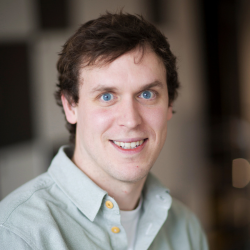Dr Richard Tyser
Email: rt593@cam.ac.uk
Laboratory: Cambridge Stem Cell Institute, Jeffrey Cheah Biomedical Centre
Biography
Richard’s research focuses on the emergence of form and function during early heart development. He did his undergraduate degree at the University of Manchester, undertaking a placement year at the University of Nevada, Reno (USA) investigating cAMP signalling in cardiomyocytes with Professor Robert Harvey. He received his PhD in Cardiovascular Medicine from University College London in 2016, having completed a British Heart Foundation 4 year PhD Programme with Professor Paul Riley and Professor Sean Davidson, investigating how the onset of cardiac function influences subsequent heart development. After his PhD, he took up a post-doctoral position with Professor Shankar Srinivas at the University of Oxford, as part of Wellcome Trust funded consortium studying gastrulation. In 2018, he was awarded a British Heart Foundation Immediate Basic Research Fellowship to study how the first heartbeat is initiated.
Research
The heart is the first organ to form and function during embryogenesis, essential in providing the developing embryo with sufficient oxygen and nutrients. Congenital heart defects are the most common type of birth defect affecting almost 1 in 100 babies born in the UK.
Research in the Tyser Group explores how the mammalian heart begins to form and function during embryonic development. They use a combination of imaging and molecular based approaches to characterise cardiac progenitor cell populations, in both the human and mouse. Using this insight, they examine the mechanisms which regulate how cardiac progenitors differentiate to give rise to the functional beating heart. They are particularly focused on understanding how the onset of contraction influences heart morphology and cardiomyocyte differentiation.
As well as addressing questions of fundamental biological significance, the group’s research aims to augment therapeutic approaches to treat disease: by establishing the underlying causes of disease as well as providing a blueprint for regenerative strategies on how best to treat them.
Key Publications
- Tyser RCV, Mahammadov E, Nakanoh S, Vallier L, Scialdone A, Srinivas S. “Single cell transcriptomic characterisation of a gastrulating human embryo” Nature (2021) 600;285–289.
- Tyser RCV, Ibarra-Soria X, McDole K, Jayaram S, Godwin J, van den Brand T, Miranda A, Scialdone A, Keller PJ, Marioni JC, Srinivas S. “Characterization of a common progenitor pool of the epicardium and myocardium” Science (2021) 371.
- Tyser RCV, Miranda A, Chen C, Davidson SM, Srinivas S, Riley PR. "Calcium handling precedes cardiac differentiation to initiate the first heartbeat" eLIFE (2016) 5:e17113 PMC5059139
- Pijuan-Sala B, Griffiths J, Guibentif C, Hiscock TW, Jawaid W, Calero-Nieto FJ, Mulas C, Ibarra-Soria X, Tyser RCV, Ho DLL, Reik W, Srinivas S, Simons BD, Nichols J, Marioni JC, Göttgens B. “A singlecell molecular map of mouse gastrulation and early organogenesis” Nature (2019) 566(7745):490- 495


